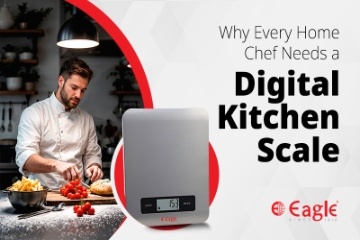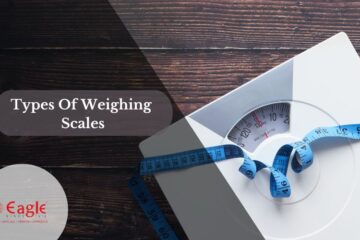We may not refer to it directly but everything around us is perceived as a comparison of something else. That’s how we tend to imply good, bad, more, less, salty, sweet, or in other cases just lookalike.
This comparison and measurement assumes a critical nature when it involves interaction with human beings. Hence measurements in engineering, food manufacturing, its consumption, and all sorts of medical intrusion activities need to be accurate to be able to have beneficial and safe effects for all life forms.
Measurement in Cooking
The process of cooking food holds no different ruling when it comes to quantifying ingredients before blending them together. Unless you are a responsible cook of the house, it is highly advisable that you measure ingredients while cooking, baking, or mixing ingredients. Therefore the use of kitchen scales, weights, and calibration weights and spoons become almost unavoidable.
Need for Measuring?
In the kitchen, you have to deal with everything from the spices and the ingredients to the heating and grilling equipment. You may be required to prepare food for yourself or as many as a crowd. As such it is important that quantified ingredients including spices be used so that everything settles in proportion and one doesn’t have to dilute and thereby waste more content for the food to have the desired taste. Hence scales, calibrated vessels, and weighing equipment become important for measuring before the procedure of cooking steps in. Let’s round up the 4 reasons why do we need to measure ingredients accurately while cooking. In this blog, we will try to explain the importance of measuring ingredients correctly and accurately.
1. To avoid wastage of food prepared:
Measuring while cooking avoids wastage of the food prepared and consequently the ingredients employed. When you know the number of your guests and their appetite, you add the ingredients accordingly keeping in mind the judicious use of the kitchen scale resources and the avoidance of food waste at the same time.
2. To produce the desired taste, look, and texture:
Besides, it isn’t just the contents that need to be measured for the recipe to turn out as it does in the tutorial you were watching. You need to mind the time as well. Thus time becomes another constraint to measure while cooking. Cooking timers help keep account of the food being cooked, baked, boiled, or grilled especially when you are a busy bee of the house.
3. To define the fine line between glorious food and a disaster:
In the end, it is about the delicacies you prepare, their odour, their appearance followed by the taste. Even before the dishes hit the dining table, you will have a fair understanding of how the dish turned out to be.
4. To employ minimal efforts:
And while you have spent hours on creating the recipe that you were so obsessing about, spent many bucks on its unique ingredients, you would yourself want to see some decent results. This is one of the important reasons why most people fail to replicate the recipes they find online.
5. To avoid wastage of other ingredients:
It is sometimes not the lack of resources but the disproportionate ingredients that fail to yield the desired results. Disproportionate ingredients not only alter the taste of food but also have repercussions on the health of its consumers.
Bad Cooking follows Bad Measuring
Let’s further understand the troubles arising out of the negligence of measuring while cooking:
1. Spices:
Spices, for instance, are great ingredients to enhance the taste and odour of the food in preparation. However, in excess, they lead to sweating, discomfort, and other health complications.
2. Salt:
Salt is the ingredient added according to taste and the state of the individuals being served to. But what if you ignore this tolerable bound? The food will no longer assert its taste rather it would be dislikeable. A fine boundary that separates the good food from the repulsive. Besides salt in limited quantities aligns with keeping good health and overall well-being.
3. Unsaturated Fats, Oils:
Unsaturated fats and oils are only desirable and healthy when consumed in a limited quantity. A leap beyond that limit results in food that is sticky, nauseating, and definitely unhealthy.
4. Baking:
While baking, it is particularly advised to use well-measured cups of flour to avoid making the cake dense.
Another bad baking example results when you fill a cake pan up to the rim without leaving any space for the cake to rise.
The disproportion of other ingredients like eggs, butter, etc will also result in a disaster that you wouldn’t refer to as a baking product.
5. Water:
While water is a good solvent for the dissolution of ingredients, its excess quantity renders the entire food soft, watery and undesirable.
Apart from this, soaking grains such as rice in excess water reduces its arsenic and vitamin composition hence highlighting the need for quantifying water in cooking.
The above points clearly show us why is measurement important in cooking. It is the primary step towards responsible cooking. It brings along exactness, judiciousness, and perfection ultimately.
Accurate Meezan provides quality measurement units and kitchen scales to make your lives manageable and balanced. Contact us today to know more.



0 Comments